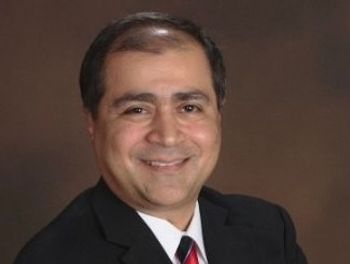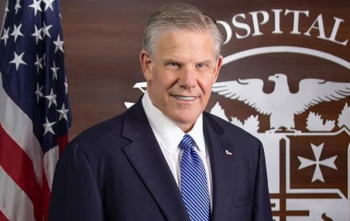
Pushing Congress to extend law to reduce burnout, suicide among healthcare workers
Healthcare groups are backing bills to reauthorize the Dr. Lorna Breen Health Care Provider Protection Act. J. Corey Feist testified at a House hearing.
Two years ago, Congress approved legislation aimed at reducing burnout and suicide among America’s healthcare workers.
The bill was inspired by
Now, lawmakers are working to reauthorize the Dr. Lorna Breen Health Care Provider Protection Act. Lawmakers have introduced measures that would extend the law for another five years.
J. Corey Feist, founder and CEO of the
“While there has been major progress made since I last sat in this seat, unfortunately, millions of health workers are still tirelessly working to save lives, often at great personal risk, yet cannot access mental health support and improve their professional well-being because of how our healthcare system operates,” Feist testified at the hearing.
The foundation spurred Congress to craft the law, and Biden to sign it. In his
“Depression is a medical illness that has many contributors, including biology, one's social structure and the environment in which we live and work,” Feist said in his testimony. “Burnout is an occupational syndrome related to the external environment in which people work.”
Feist’s testimony included heartbreaking messages in support of the legislation, outlining the troubles and torment of many healthcare workers.
One individual wrote that her husband died by suicide, fearing he couldn’t get help without losing his job as an orthopedic surgeon, Feist said. A nurse wrote about the immense value of counseling, saying it has saved her life, and her marriage, and noting that her employer pays for assistance.
Republicans and Democrats have sponsored identical reauthorization bills in the House and Senate.
U.S. Sen. Tim Kaine, D-Va., and U.S. Sen. Todd Young, R-Ind., have sponsored the Senate bill. U.S. Rep. Susan Wild, D-Pa., has sponsored the House measure, with three co-sponsors, U.S. Rep. Jen Kiggans, R-Va., Buddy Carter, R-Ga., and Debbie Dingell, D-Mich.
“We must reauthorize this critical law to continue carrying on Dr. Breen’s legacy and investing in support for health workers’ mental health needs,” Wild said in a
Healthcare advocacy groups are supporting the reauthorization of the legislation. The American Nurses Association is urging lawmakers to support it. Many nurses in hospitals have said they are experiencing burnout and severe stress. Jennifer Mensik Kennedy, president of the nurses association, notes that too many nurses are dying by suicide in her endorsement of the legislation.
“Being a nurse demands selflessness, in some cases to the extreme. Rarely do they put themselves first, and devastatingly, that has led to the loss of so many nurses by suicide,” Mensik Kennedy said in a
- Read more:
Nurses in hospitals: Burnout by the bedside
The American Hospital Association is backing the legislation.
“Reauthorizing the Dr. Lorna Breen Health Care Provider Protection Act is critical in providing our caregivers the support they deserve. Doing so will also help ensure patients and communities continue to have access to high-quality, compassionate, and accessible care,” Stacey Huges, AHA executive vice president, said in a statement.
Many doctors say
The Lorna Breen foundation has been pushing state licensing boards - and hospitals and health systems - to
Getting help








































